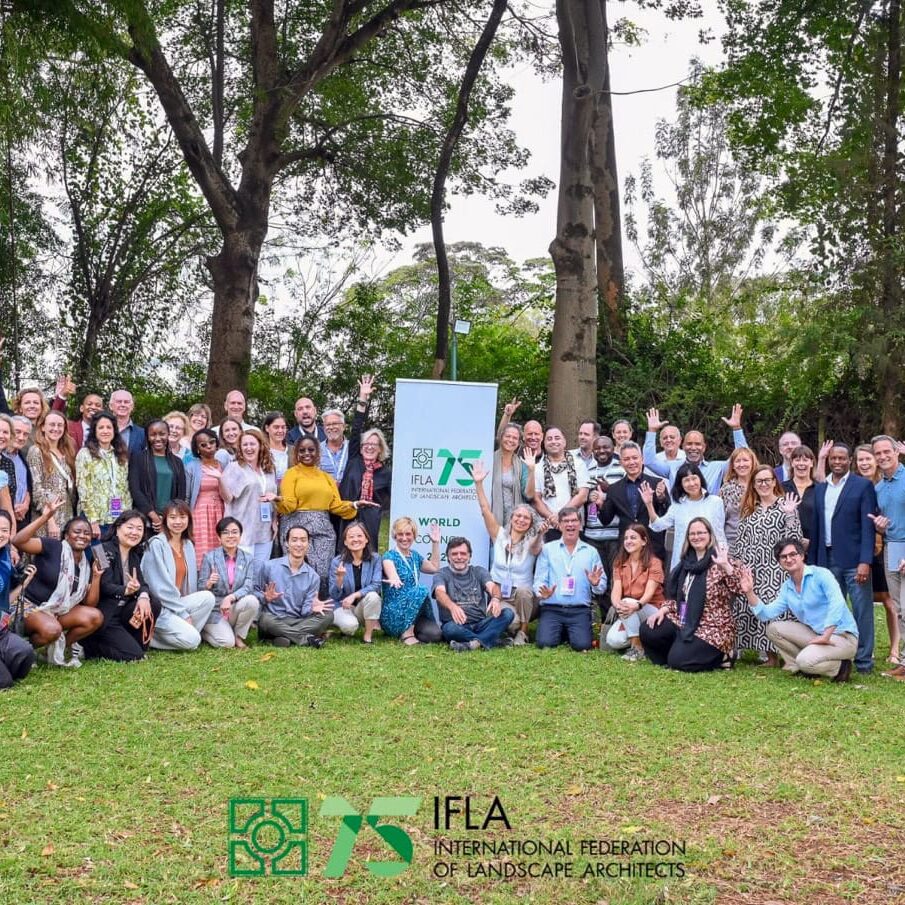CLARB is committed to enhancing international access, mobility and professional recognition for landscape architects worldwide. Through strategic partnerships, research and collaboration, we are working to align professional standards, improve regulatory consistency and strengthen the global standing of the profession.

Strengthening global collaboration
CLARB’s membership in IFLA
As the first corporate member of the International Federation of Landscape Architects (IFLA), CLARB is expanding its role in shaping the global landscape architecture profession. This membership provides opportunities to share insights, research and expertise with colleagues across five IFLA regions while contributing to international efforts that support education, training and professional development.
Through this engagement, we are fostering connections that enhance global licensure recognition and regulatory alignment. CLARB’s participation also sets the stage for other organizations, academic programs and private practices to collaborate with IFLA member associations, expanding opportunities for landscape architects worldwide.

Understanding practice around the world
Landscape Architecture Global Job Task Analysis
To better understand how landscape architecture is practiced worldwide, CLARB partnered with IFLA to conduct the Global Job Task Analysis (GJTA). This research identifies commonalities and differences in professional practice at global, regional and national levels. The study provides valuable insights into the profession’s scope and ensures that licensure, education and regulatory frameworks reflect real-world practice.
By analyzing landscape architecture's role across different regions, the GJTA helps broaden recognition and ensures regulatory standards align with the evolving needs of the profession.

Advancing professional recognition
Partnership with IFLA Americas
At the 2023 CLARB Annual Meeting, CLARB and IFLA Americas formalized a strategic partnership to strengthen and unify the landscape architecture profession across the Americas. This collaboration focuses on advancing professional registration and accreditation standards in Latin America, conducting research on regulation and the official recognition of landscape architects, and sharing insights from the IFLA-CLARB Global Survey of Practice with IFLA Americas member countries.
As part of these efforts, CLARB supported a pilot study evaluating the curriculum equivalency of the landscape architecture program at Universidad Nacional Autónoma de México (UNAM). Following this assessment, CLARB now recognizes the program as meeting the education requirement for CLARB Certification, an important step toward aligning international qualifications. By working together, CLARB and IFLA Americas are fostering greater mobility, regulatory clarity and professional recognition throughout the region.

Expanding regulatory standards
IFLA Africa partnership
CLARB and the IFLA Africa Region have formalized a partnership to strengthen the landscape architecture profession across the continent. This collaboration focuses on enhancing professional recognition, supporting regulatory development and promoting consistent standards for registration and education. CLARB will provide expertise and data from the Global Survey of Practice, while IFLA Africa will distribute findings and advocate for unified professional standards.
Through joint workshops, research and knowledge exchange, this partnership is a key step toward increasing international mobility and regulatory clarity for landscape architects in Africa.

Assessing licensure equivalency to facilitate mobility
CLARB and the Philippines
CLARB and the Professional Regulation Commission (PRC) of the Philippines signed a memorandum of understanding to strengthen international cooperation in landscape architecture regulation. This partnership establishes a Technical Working Group to assess the alignment of licensure standards, including education, experience and assessments.
By working together, CLARB and PRC aim to enhance professional mobility, facilitate knowledge exchange and explore pathways for mutual recognition of qualifications. This agreement marks a significant step toward greater global integration in landscape architecture regulation while ensuring rigorous professional standards.